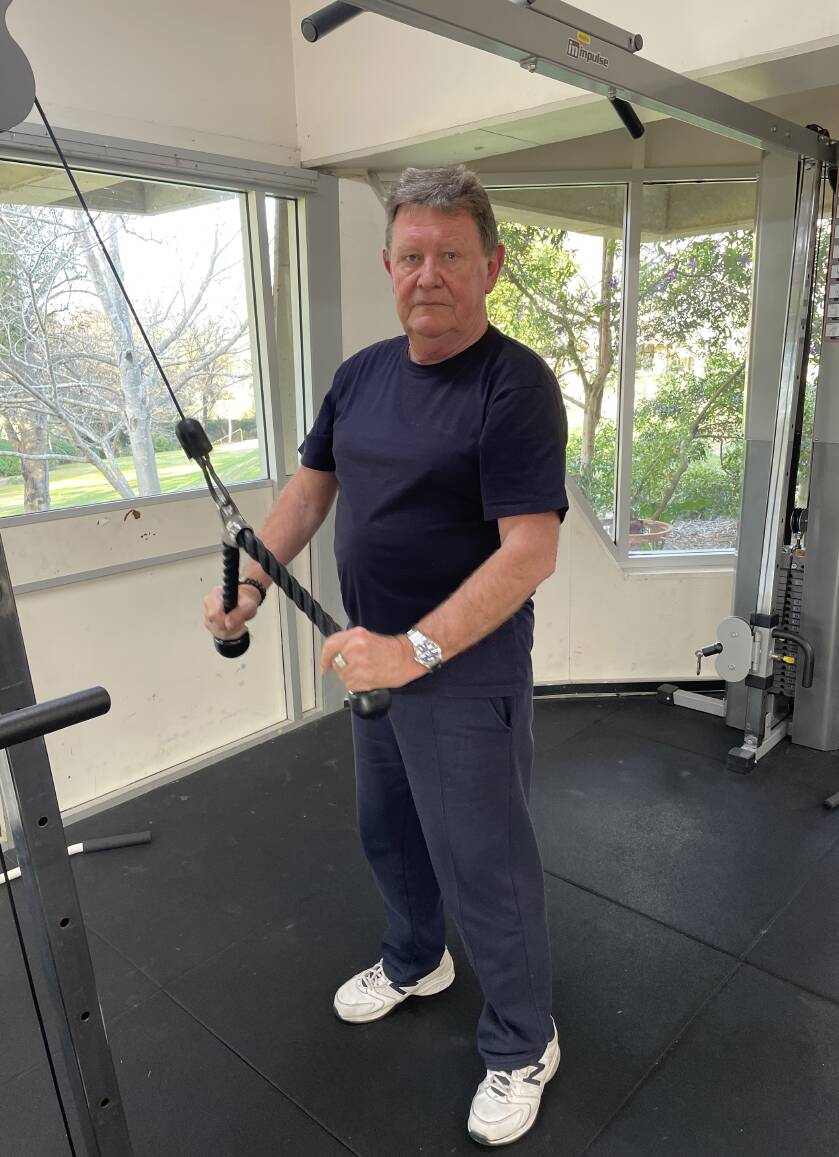
Cessnock's Paul Hokin has spent more than nine months a year in a psychiatric hospital for five years.
Mr Hokin, 69, suffers from post-traumatic stress disorder (PTSD), due to being brutally assaulted in an Australian Army initiation ritual at age 18.
He joined the army in 1972 to go to Vietnam, but never made it there. He was medically discharged after 13 months due to mental anguish.
Mr Hokin said his long stays for treatment at St John of God Richmond Hospital saved his life.
He was at the private mental hospital, a 2.5-hour drive from Cessnock, on Thursday when a new wellness centre was unveiled as part of the first stage of a $65 million redevelopment.
The hospital specialises in PTSD, anxiety, depression and drug and alcohol addictions.
The hospital's chief executive Colman O'Driscoll said it was a place where veterans and first responders received the "first-class care" they deserve.
"We need to be giving these people every opportunity for recovery and rehabilitation when they are suffering as a result of their service," he said.
Officially opened by Sir Peter Cosgrove, the wellness centre contains a new gym, a room for yoga, meditation and group meetings, exercise physiology treatment rooms and a large indoor swimming pool.
On admission to the hospital, 70 per cent of military veterans and 85 per cent of first responders are diagnosed with PTSD.
Exercise is a big part of the treatment program.
"We know exercise impacts PTSD, addiction and anxiety in a positive way, with research showing that forming healthy new habits is effective in reducing symptoms," Mr O'Driscoll said.
Mr Hokin said the exercise program gives him a "big boost".
"It keeps me more focused and is great for my mood swings. It's a fabulous tonic."
His gym workouts include riding an exercise bike and lifting weights.
"Exercise works really strongly with post-traumatic stress disorder. It's good for the muscles and the brain," he said.
He does yoga in the morning and evening, which helps him relax and sleep.
In group classes during the day, "we look at things like relationships, fight, flight or freeze, avoidance and emotional disturbances".
The relationship part helps Mr Hokin understand why his 40-year marriage broke down four years ago.
The Department of Veterans' Affairs covers the cost of Mr Hokin's stays at the hospital. The department recommended he stay there due to its record in preventing suicide and improving mental health.
"I normally come in for three to four months at a time," he said.
He takes antidepressants and other medication for anxiety, depression, PTSD, high blood pressure, cholesterol and hypertension.
"I'm on 18 tablets in the morning, five at lunch and 10 in the evening."
He never reported the assault he suffered in the army.
"I was too ashamed and I would have been victimised even more," he said.
The Royal Commission into Institutional Responses to Child Sexual Abuse said in a 2017 report that that Australia's military had enabled abuse of teens for decades.
The inquiry investigated reports of abuse that took place at Australian military training bases in the 1960s, '70s, and '80s.
The Royal Commission into Defence and Veteran Suicide also heard last year of a "culture of hazing" in the military.







